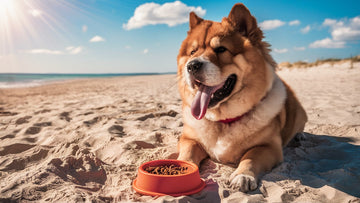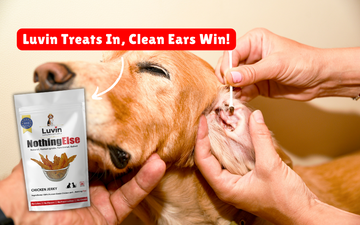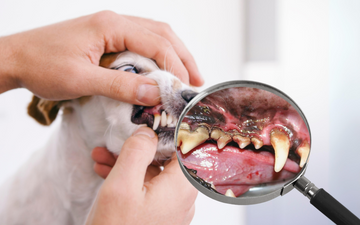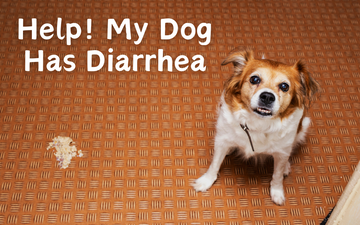Tiny Hearts, Big Responsibilities: A Guide To Newborn Puppy Care
by Luvin digital on Jan 15, 2024
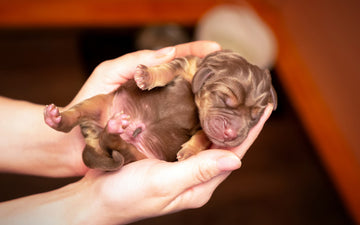
Caring for newborn puppies is a significant responsibility, and ensuring their proper nourishment and well-being is crucial. Here's a comprehensive guide on how to responsibly feed and care for orphaned puppies:
Feeding Schedule:
Newborn puppies need to be fed consistently, requiring a feeding every two to three hours around the clock. Typically, six to eight equally spaced meals over a 24-hour period are adequate for most puppies. However, smaller or weaker puppies may need more frequent feedings.
Choice of Food:
For complete nutrition, it's advisable to use a commercial puppy milk replacer available from your veterinarian or a pet supply store. These milk replacers come with feeding instructions on the label and should be served at the puppy's body temperature, which is approximately 100 degrees Fahrenheit. After opening the can or reconstituting the powder, any unused formula should be refrigerated and discarded after 24 hours. Once the puppies reach 3-4 weeks of age, you can start feeding them milk replacer at room temperature. Then after 5-6 months, wet or dry puppy food can be served as well
Method:
When feeding orphaned puppies, it's best to utilize commercial animal baby bottles, although you can use an eyedropper in emergencies. The size of the hole in the nipple is crucial; if milk drips freely when the bottle is turned upside down, the hole is too large. The bottle should require a gentle squeeze, simulating a puppy's natural suckling motion, for milk to come out. If necessary, you can enlarge the hole with a heated needle.
Steps for Feeding:
Position the puppy on its stomach with its head level, mimicking how they would nurse from their mother. Avoid feeding the puppy while it's on its back, as they have an underdeveloped gag reflex, and fluids can accidentally enter their lungs.
Gently open the puppy's mouth with one finger and place the nipple's tip on their tongue. If they refuse to eat, try gently stroking them.
Slightly tilt the bottle upwards to prevent the puppy from inhaling too much air. Avoid forcing the puppy to nurse or allowing it to feed too rapidly.
After each feeding, ensure that the puppy is burped by holding them against your shoulder and gently patting their back.
Hygiene Precautions:
Maintaining strict hygiene is vital for the optimal health and development of orphaned puppies. Follow these best practices:
Clean and sterilize bottles and nipples between uses by boiling them in water.
Prepare only the amount of milk replacer that can be consumed within 24 hours, and store any unused portions in the refrigerator.
Discard milk replacer that has been left at room temperature for more than an hour.
By diligently adhering to these feeding and hygiene guidelines, you can help orphaned puppies thrive and grow into healthy dogs.



